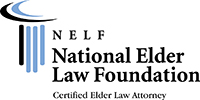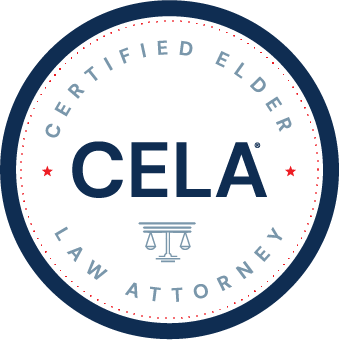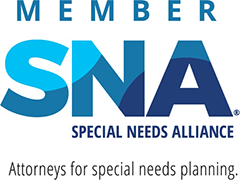Firm News
Cases and Amendments to the MSP Statute Medicare Part C and D – CMS and Some Courts Disagree on Subject Matter Jurisdiction, but Recovery Rights Still Exist under Contract
It appears that Medicare Advantage Organizations (MAOs) and Prescription Drug Plans (PDPs), Medicare Part C and Part D private carriers, also come into the fold as entities that parties will have to deal with regarding Medicare secondary payment subrogation rights as these private carriers begin seeking reimbursement for payments made for services in which Medicare is a secondary payer.
On December 5, 2011, CMS published a memorandum to all Medicare Advantage Organizations and Prescription Drug Plan Sponsors regarding Medicare Secondary Payment Subrogation Rights for Part C and Part D private carriers seeking reimbursement for payments made for services in which Medicare is a secondary payer.
The memorandum summarizes CMS’s regulations giving MAOs and PDPs the right, under existing federal law, to collect for services for which Medicare is not the primary payer. The memorandum mentions recent decisions where several courts have challenged federal regulations governing these collections. Specifically, the memo mentions that several MAOs have not been able to take private action to collect for Medicare Secondary Payer services under federal law because they have been limited to seeking remedy in State court. CMS’s memorandum also indicates that these same regulations established in 42 CFR § 411 supersede any state laws. Additionally, the MSP regulations at 42 CFR §422.108 are extended to Prescription Drug Plan (PDP) sponsors at 42 CFR §423.462. Accordingly, PDP sponsors have the same MSP rights and responsibilities as MAOs.
The memorandum makes it clear that CMS’s regulations at 42 CFR § 422.108 describe MSP procedures for MAOs to follow when billing for covered Medicare services for which Medicare is not the primary payer. According to the memo, these regulations also assign the right (and responsibility) to collect for these services to MAOs. Specifically, §422.108(f) indicates that MAOs will exercise the same rights of recovery that the Secretary of Health and Human Services (HHS) exercises under the original Medicare MSP regulations in subparts B through D of 42 CFR § 411.
It is likely that the memo was written in part due to cases such as Humana Medical Plan v. Reale, decided on January 31, 20118, by the Federal Southern District Court in Florida and Parra v. PacifiCare of Arizona, Inc., decided April 19, 2013 by the Ninth Circuit Court of Appeals.9 In both cases, the courts ruled that the federal courts did not have proper subject matter jurisdiction to hear the cases. In reaching these decisions, the courts essentially found that while the MSP provides Medicare Advantage Plans with recovery rights, these plans do not enjoy the same rights as the federal government in terms of recovery claims in federal court. Note, however, that the courts did not rule that Medicare Advantage Plans do not have recovery rights, but that federal courts do not have jurisdiction over recovery actions involving Medicare Advantage Plans.
In Humana, the court concluded it lacked subject matter jurisdiction over Humana’s complaint requesting reimbursement of conditional payments it made. The court concluded that under 42 U.S.C. 1395y(b)(2)(B)(i), the United States is the only entity vested with full authority to bring an action for reimbursement, not the Secretary. Therefore, the court concluded that because the Secretary does not have the authority to bring such action, Humana did not have the authority either.
Humana was the Medicare Advantage organization that administered Medicare benefits to Medicare beneficiaries enrolled in the Medicare Advantage program. In April 2009, Humana provided Mary Reale, a Medicare Advantage program participant, with certain Medicare benefits in the amount of $19,155.41 to cover Ms. Reale’s medical expenses stemming from a of a slip and fall at a condominium complex. Ms. Reale’s action against the condominium association settled for an amount greater than $19,155.41. On May 17, 2010, Humana filed an Amended Complaint against Ms. Reale and her attorney, alleging that it was entitled to receive reimbursement of the $19,155.41 paid to Ms. Reale under the MSP. Ms. Reale and her attorney argued that the case should be dismissed because 42 U.S.C. § 1395y(b)(2) did not grant Humana a private cause of action and, as a result, the court lacked subject matter jurisdiction.
Humana contended that the court had subject matter jurisdiction because Humana’s alleged right to reimbursement under 42 U.S.C. § 1395y(b)(2) “present[s] an important and ‘substantial’ issue of federal law.” Section 1395y(b)(2) requires reimbursement to the “appropriate Trust Fund for any payment made by the Secretary [of Health and Human Services]. . . with respect to an item or service if it is demonstrated that such primary plan . . . had a responsibility to make payment with respect to such item or service.” Humana argued that § 1395y(b)(2), coupled with 42 C.F.R. § 422.108(f), entitled it to reimbursement.
The court disagreed, indicating that a close reading of the federal regulation suggests otherwise. A Medicare Advantage organization, such as Humana, “will exercise the same rights to recover from a primary plan, entity, or individual that the Secretary exercises under the MSP regulations …” However, under § 1395y(b)(2)(B)(i), the court found that the Secretary’s authority was limited to making payments “conditioned on reimbursement to the appropriate Trust Fund.” Under § 1395y(b)(2)(B)(iii), the United States, but not the Secretary, is vested with full authority to bring an action for reimbursement. Therefore, the Secretary did not have the authority to bring such action.
In Parra, Manuel Parra was injured when struck by a car as he was walking through a parking lot. Parra was a participant in a MAO plan offered by PacifiCare of Arizona, Inc., which paid his hospital and medical bills. After Mr. Parra died from his injuries, his wife and children brought suit against the automobile driver’s insurance policy for wrongful death. PacifiCare also made a claim against the policy for the $136,630.90 it expended for Parra's care. The survivors eventually entered into a settlement, under which the insurer issued a $136,630.90 check jointly payable to the survivors' attorney and to PacifiCare's affiliate, to be held in trust pending resolution of the parties' dispute, and paid the balance of the policy limits to the survivors.
The survivors then filed a complaint in the United States District Court for the District of Arizona, seeking declaratory and injunctive relief. The survivors sought injunctive relief and a declaration that PacifiCare was not entitled to any reimbursement payments out of the wrongful death benefits paid by the auto insurance. Their theory was that PacifiCare had no greater reimbursement rights than the Secretary of Health and Human Services and the Secretary had already determined that Medicare will not seek reimbursement from wrongful death proceeds that do not include payment for the decedent's medical expenses.
PacifiCare counterclaimed, also seeking declaratory relief, arguing it was entitled to reimbursement under both the terms of its contract with Mr. Parra (Count I) and directly under the Medicare Act (Count II). The parties each moved for summary judgment. The motions were referred to a magistrate judge, who recommended dismissal of the action for lack of subject matter jurisdiction.
The district court accepted and adopted the magistrate judge's Report and Recommendation as its own findings of fact and conclusions of law. But rather than dismissing Count II for lack of subject matter jurisdiction, the court granted the survivors' motion for summary judgment "to the extent it asked [the court] to find [PacifiCare] does not have a private cause of action under the Medicare statute or the Medicare Secondary Payer (MSP) Act." The court declined to exercise supplemental jurisdiction over Count I.
PacifiCare appealed, contending that because the MAO Statute allows a MAO to charge a primary plan for conditional payments made on behalf of a plan participant, that statute grants it a private right of action to recover those payments as well. The court found the argument unavailing.
The court found that on its face, the MAO Statute does not purport to create a cause of action. Rather, it simply describes when MAO coverage is secondary to other insurance, and permits (but does not require) a MAO to include in its plan provisions allowing recovery against a primary plan, as PacifiCare did in this case. The court noted that in considering 42 U.S.C. § 1395mm(e)(4), a provision virtually identical to the MAO Statute governing privately run health maintenance organizations ("HMOs"), courts have consistently concluded that Congress did not intend to create a federal cause of action. The court therefore reasoned that the MAO Statute simply allowed PacifiCare to provide via its contracts that its insurance is secondary to other available plans and allows recovery from a primary plan that refuses to reimburse the MAO for payments made on behalf of a participant. In the end, the MAO's claim thus arises by virtue of its decision to include provisions allowing such recovery in its contract with plan participants.
PacifiCare also argued that the MAO Statute creates a federal cause of action by cross-referencing 42 U.S.C. § 1395y(b)(2)(B)(iii), which provides, in part, that the "United States may bring an action against any or all entities that are or were required or responsible . . . to make payment with respect to the same item or service . . . under a primary plan." PacifiCare contended that because this provision created a cause of action in favor of the United States, the reference to it in the MAO Statute meant that a federal claim is also created for MAOs.
The court found that the cross-reference to § 1395y(b)(2)(B)(iii) in the MAO Statute simply explains when MAO coverage is secondary to a primary plan" under circumstances in which payment under this subchapter is made secondary pursuant to section 1395y(b)(2)"that is, under the same circumstances when insurance through traditional Medicare would be secondary. The cross-reference defines when MAO coverage is secondary, but does not create a federal cause of action in favor of a MAO.
PacifiCare also cited 42 C.F.R. § 422.108(f), which provides that MAOs exercise "the same rights to recover from a primary plan, entity, or individual that the Secretary exercises under the MSP regulations." The court found that the regulation added nothing to a MAO's claim to a private right of action because it is laws passed by Congress, and not rules or regulations passed by an administrative agency, that determine whether an implied cause of action exists.
PacifiCare next argued that the private cause of action authorized its claim against the Survivors. The court found that a private cause of action applies "in the case of a primary plan which fails to provide for primary payment." But in the instant case, PacifiCare made no claim against the primary plan (the automobile insurance company), nor did the plan fail to provide payment. The court noted that PacifiCare's claim for relief is not against the insurer, or even against Parra's estate for sums received from a primary plan for medical expenses, but rather against the Survivors and their claim.
The court found that the private cause of action was intended to allow private parties to vindicate wrongs occasioned by the failure of primary plans to make payments. The statute was not, however, intended to apply to a primary plan which, for all intents and purposes, had interpleaded a sum subject to conflicting claims.












